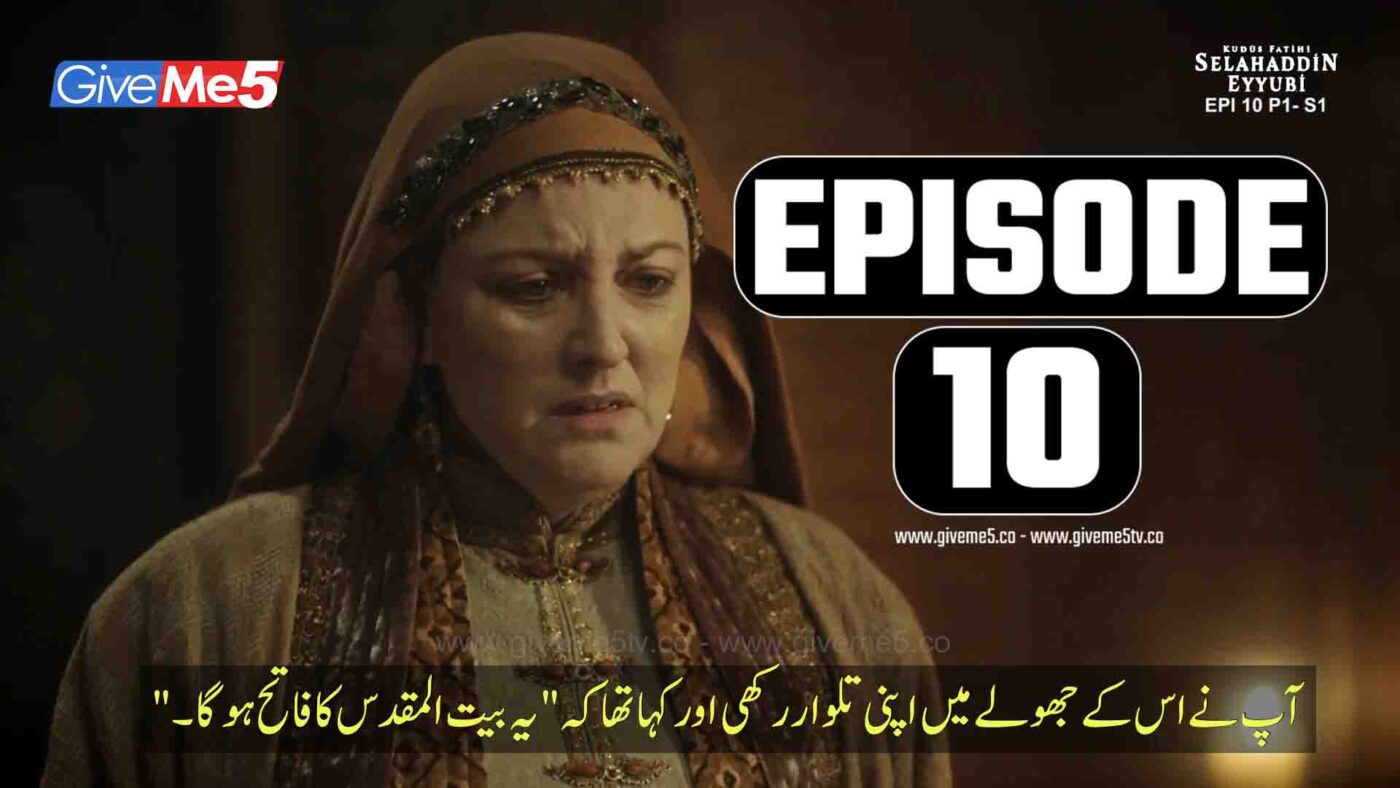This is Episode No 10 of Kudüs Fatihi Selahaddin Eyyubi with Urdu Subtitles by GiveMe5.
Noor Ud Din Zengi and the Rise of the Zengid Sultanate
Noor Ud Din Zengi, often simply known as Zengi, was a significant political and military figure in the medieval Islamic world during the 12th century. His life and the establishment of the Zengid Sultanate left an enduring impact on the political landscape of the time. From his early years to his leadership in the complex political environment of the Middle East, Zengi’s story is one of strategic brilliance, military prowess, and the pursuit of a united Muslim front against external threats.
Early Life:
Noor Ud Din Zengi was born in 1087 in the fortress of Altunapa in northern Syria, into the Turkish Seljuk noble family of Oghuz Turks. His early life was marked by the tumultuous atmosphere of the region, with political fragmentation and power struggles defining the dynamics of the time. His father, Aq Sunqur al-Hajib, was a military officer in the service of the Seljuk Turks, and Zengi inherited his father’s military prowess and strategic acumen.
In his formative years, Zengi witnessed the decline of the Seljuk Empire and the rise of local power centers. The political vacuum created by the weakening of central authority provided ambitious leaders like Zengi with opportunities to carve out their own spheres of influence.
Ascension to Power:
Zengi’s principality included Mosul, Aleppo, and parts of northern Syria. As atabeg, he faced the dual challenges of internal rivalries among Muslim leaders and the external threat posed by the Crusaders. Zengi recognized the urgent need for Muslim unity against the Crusader states and embarked on a mission to consolidate his power and rally support for a concerted effort to push back against the invaders.
The Battle of Azaz:
One of Zengi’s notable early achievements was the recapture of the city of Azaz from the Crusaders in 1128. This victory marked a turning point in Zengi’s efforts to unite Muslim forces against the Crusader threat. Azaz had been a stronghold for the Crusaders, and its recapture signaled Zengi’s determination to resist the encroachment of foreign powers in Muslim territories.
The Unification of Muslim Territories:
Zengi’s vision extended beyond individual victories; he sought to create a unified front against the Crusaders. His efforts to consolidate power included diplomatic maneuvers, military campaigns, and strategic alliances. Zengi understood the need for a united Muslim front, transcending sectarian and ethnic divides, to effectively counter the external threats posed by the Crusader states.
His leadership style emphasized a combination of military strength and diplomatic finesse. Zengi’s principality became a center of culture and learning, attracting scholars and intellectuals who contributed to the intellectual and scientific advancements of the time. This cultural flourishing under Zengi’s rule demonstrated his commitment to not only political and military success but also the prosperity and enlightenment of his territories.
Legacy of Noor Ud Din Zengi:
Noor Ud Din Zengi’s legacy is enduring, and his efforts laid the foundation for the Zengid Sultanate, which continued to play a crucial role in the geopolitics of the region after his death. Zengi’s sons and successors, particularly Imad ad-Din Zengi and Nur ad-Din Zengi, carried forward his vision of a united Muslim front against external threats.
Nur ad-Din, in particular, further expanded the Zengid Sultanate’s territories and continued the fight against the Crusader states. His leadership and military campaigns earned him a reputation as a chivalrous and capable ruler who remained committed to the principles set forth by his father, Zengi.
Conclusion:
Noor Ud Din Zengi’s life and the establishment of the Zengid Sultanate exemplify the complexities and challenges of the medieval Islamic world. His strategic vision, military acumen, and commitment to Muslim unity against external threats left an indelible mark on the political landscape of the time. Zengi’s legacy continued through the actions of his successors, shaping the course of history in the Levant and influencing the dynamics of the Crusades.
Zengi’s principled approach to governance, his emphasis on cultural and intellectual flourishing, and his pursuit of unity among diverse Muslim factions highlight the depth of his leadership. As a central figure in the history of the Middle East, Noor Ud Din Zengi’s contributions resonate through the centuries, reminding us of the complexities and enduring legacies of leaders in a region where history and geopolitics have always been intricately intertwined.

